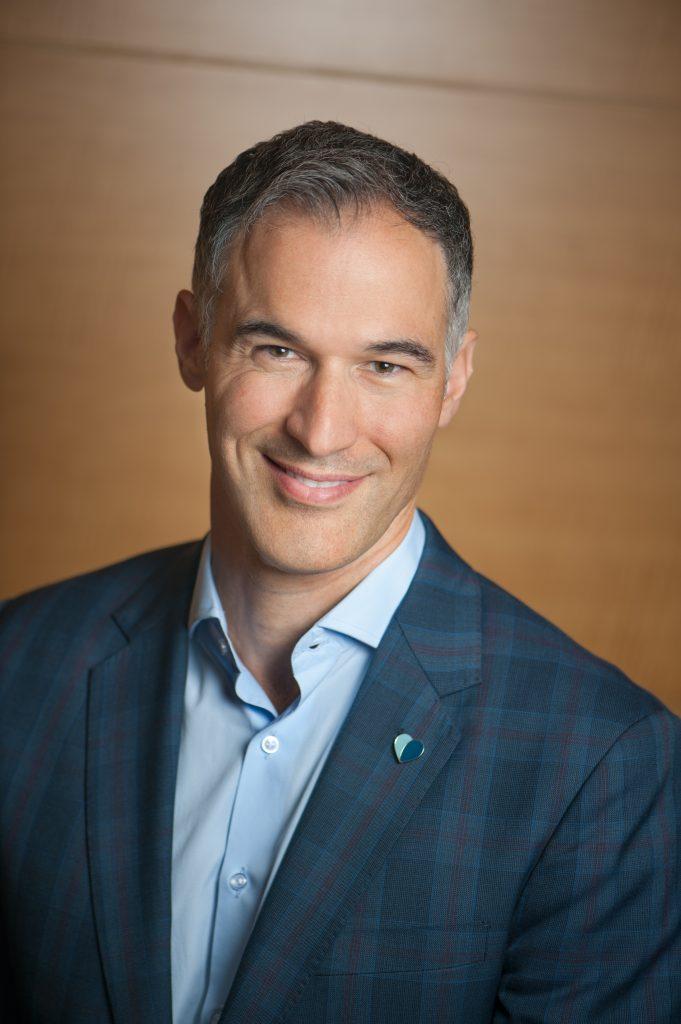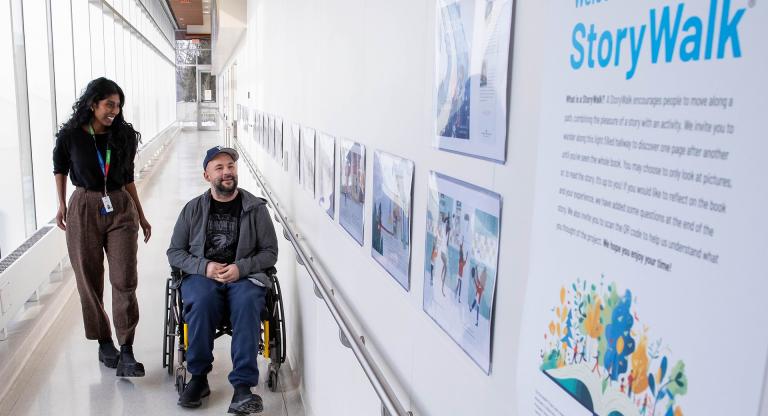Developments in diabetes research lead to greater freedom

Often called the epidemic of our times, it is estimated that there will be six million Canadians diagnosed with diabetes by 2028, and currently, 20 people in Canada are diagnosed with diabetes every hour. The need for understanding, research, and treatment has never been more urgent.

Doug Mumford knows all about the challenges of living with diabetes. Diagnosed with Type 1 Diabetes when he was 18 years old, he was told to expect a rigid life that revolved around managing this condition. “I was told that if I lived a strict, regimented life – woke up at the same time every day, ate the same six meals every day, then I might live to reach the age of 50,” explained Doug.
Type 1 diabetes is a chronic disease in which insulin is not properly produced by the body. Insulin, a hormone released by the pancreas, helps to regulate blood sugar, or glucose levels. When blood sugar is not regulated by insulin, the body experiences high blood sugar levels, which can damage organs, blood vessels and nerves. At Mount Sinai Hospital’s Leadership Sinai Centre for Diabetes(opens in a new tab), a team of physicians, researchers, nurses, educators, patient care administrators and more are working tirelessly to create better care and better health for the most complex diabetes patients, patients like Doug.
Doug has since surpassed that initial projection, and now, at the age of 68, is living his life in a way that he didn’t expect after first being diagnosed. Ten years ago, Doug entered into a clinical trial run by Dr. Bruce Perkins, now Director of Leadership Sinai Centre for Diabetes that aimed to lower blood sugar by using a sensor-augmented insulin pump with continuous glucose monitoring built in. Thanks to his participation in this trial, Doug was able to get his blood sugar to recommended levels. “After the 18 month long trial, with the help of staff at the Centre for Diabetes, I have maintained those lowered blood sugar levels continuously now for 10 years,” says Doug. This decrease in blood sugar levels means that Doug is at a greatly reduced risk for complications from diabetes like kidney, eye and nerve damage.
“Thanks to the support from Leadership Sinai Centre for Diabetes and these new developments in treatment and insulin delivery, I’ve been able to achieve the things in life I wanted to achieve. I’ve been successful in business, raced sailplanes and sailboats, and have been given great freedom, the most important thing to me is that I don’t live that regimented life, simply caring for a chronic condition – I live the life I choose,” says Doug. “This freedom comes from the developments of the Lunenfeld-Tanenbaum Research Institute, new insulin delivery systems, the clinical trials, all that stuff! And of course, my care team – the dietitians, the nurses – who have been there for all those years, to encourage me, lecture me, tell me how to do it, and tell me how to do it again. I extend my gratitude to all of them.”
The Leadership Sinai Centre for Diabetes aims to provide the highest quality diabetes care through the integration of clinical practice, research and education for individuals with diabetes and their families. The Centre is also committed to advancing the practice of health care through actively promoting research and continuing education for health care professionals in areas related to diabetes. For a list of active research studies, please visit the research studies section(opens in a new tab).













